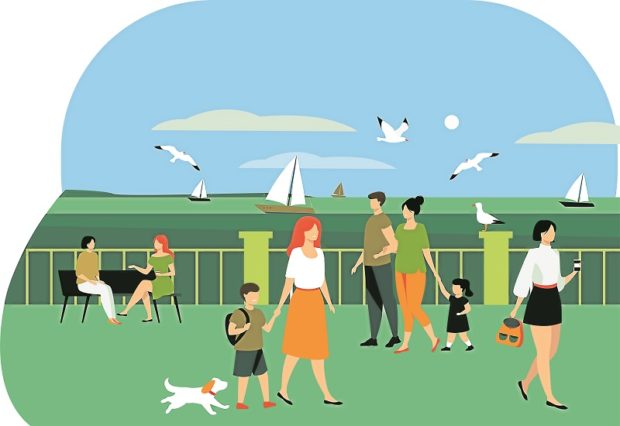If you haven’t been living under a rock, you may have caught wind of these young Filipinos who decided they would spend their pandemic lockdowns in the best ecotourism destinations in the country, “working from home” while lying down on a hammock, sitting pretty on a poolside lounge chair or reading e-mails on their phone just before they plunge into a lake.
These tales of digital nomads fleeing to ghost-town tourism hubs initially make us feel a bit of wrath and self-pity. They maximized discounts and low rates while keeping the tourism industry afloat. They got the chance to commune with nature undisturbed by the usual crowds. While they lived this kind of life, they also saved up a lot of money because they got paid Manila-rate but spent like spartans.
Shake off the bitterness and, in these anecdotes, you will find the perks of living in real estate offerings across the many ecotourism zones of our beautiful archipelago, properties that may have been present among developers’ portfolios for years now but find a renewed boost this time because of the pandemic.
Improved health. Many of those that left the urban centers and worked in vacation homes under cheaper long-term leases were simply tapping out of their troubles. They just wanted a change of scenery. When they rested their eyes, they wanted to see palms swaying with the wind or a bright blue sky. When they stretched out after hours seated, they desired a solemn walk or do yoga to the sound of crashing waves.
Nature has a way of uplifting the weary. When you decide to live in paradise, you get to commune with nature as much as you want whenever you want.
Deeper social connections. Another effect that literature connects to the presence of lush greenery is social cohesion. When you live in places where neighbors get opportunities to share profound experiences with one another—say, watching the sunrise on the coast or planting veggies in a communal garden, certainly not easy or even enticing in urban settings—you get to develop a deeper bond.
This is a common observation among people who grew up in rural settings but moved to the city for work or urban dwellers who decided to switch to “farm life.” Deeper relationships form in places that encourage togetherness. Ecotourism hotspots (especially with Filipino hospitality) offer an abundance of this.
Savings. As noted earlier, some people became more productive when they worked from a destination. While the cost of living is scandalously low in the countryside, even in these now-empty hotspots, workers earn the same as they did when they were based in Manila. Some even got promotions and, thus, accumulated even bigger savings. Those savings can then be used for items more significant than gas money or office clothes.
Investment opportunities. They say disasters are openings. You see where things can improve, where products and services are lacking, where voids need to be filled out. Particularly now, with tourism hard-hit by COVID-19 and an economic slowdown turning real estate into a buyer’s market (low mortgage rates and discounts unseen pre-pandemic), you can invest your savings in small businesses or properties to keep or lease out.
These spaces are bound to enjoy capital appreciation as soon as the inevitable recovery comes, and footfall returns. This isn’t even a new approach. It is something first-movers and pioneers use. As this pandemic gives us a reboot, we have a rare chance to be first-movers ourselves.


